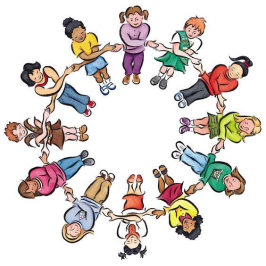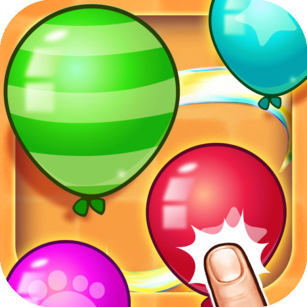|
Long term plan
module: Module
5
Theme: Unit
Revision
|
School:
28
|
|
Date:
|
English teacher:
Bolat Ulbolsyn
|
|
Class: 2
|
Number of
present
|
Absent: -
|
|
Learning
objective(s) that this lesson is contributing
to:
|
1.UE9 use basic present simple
forms [positive and negative] to give basic personal
information
1.S3 pronounce basic words and
expressions intelligibly
1.S5 produce words in response
to basic prompts
1.S1make basic personal
statements and simple statements about
objects
|
|
Lesson
objectives:
|
All learners will be able
to:
• listen and repeat the words,
follow the instruction according to the
task
• Make up correct sentence about
the things they like and dislike
• Can speak 5 parts of the
head
|
|
Most learners will be able
to:
• recognise and name some words
according to the topic, follow the instruction according to the
task
• Make more than 1 sentence
correctly using different sentence
structure
• Can speak 3 parts of the
head
|
|
Some learners will be able
to:
• recognise and name most of the
words according to the topic, follow the instruction according to
the task
• Read and write some of the
words from the topic
• Can speak 2 parts of the
head
|
|
Success
criteria
|
Students will have succeeded
in this class if they:
1. Name at least 6 out of 9
words correctly
2. Followed the instruction of
the teacher immediately with support
3. Say at least 2
sentences about what they like and dislike
correctly
|
|
Value
links
|
Respect and cooperation
by:
1. Listening to the
teacher
2. Listening to each
other
3. Take
turns
4. Encourage each
other
5. Helping each
other
|
|
Previous
learning
|
big/small parts of
faces types of food has got I like / I don`t
like
|
|
Lesson
Plan
|
|
Planned
timing
|
Planned activities (replace
the notes below with your planned
activities)
|
Resources
|
|
Start (Beginning of the
lesson)

3-mins
4
mins
|
Greeting: Teacher teaches the learners
to greet one another in English; learners respond to greeting of
the teacher and take their places. Dividing into 2
groups.
Refer the pupils to the
shopping list and the pictures of fruits and vegetables. Explain
the activity. The pupils find and put into their basket. Then
they`ll have.
1st
group: carrots, onions,
potatoes, tomatoes
2nd
group: apples, bananas,
oranges, pears
What do you
have?
Warm up
activity
(milk, soup, fish, ice cream,
cookies, juice, pizza, salad, banana )
Phonetic
drill
I like to eat eat
eat
Apple and bananas
I like to eat eat
eat
Apple and bananas
I like to eat eat
eat
Apple and bananas
|
Pictures of the fruits and
vegetables
colourful
stickers
|
|
Middle (of the
lesson)
5
mins

4
mins
5
mins
4
mins
10
mins
|
Play a game:
Ball
 
Request from
pupils: Do you like …? Do you like
…?
Individual work. Formative
assessment
Pupils must draw 5 parts of
the head.
Task: Listen and draw parts of
the head
Play a game: Simon
says
1. Choose someone to be
“Simon.”
2. Have “Simon” give a command
to the other players.
3. If the command starts with
“Simon says…” the players have to do it.
4. If the command doesn’t
start with “Simon says…” and a player does it, they’re
“out.”
5. The last person standing
wins!
Group
work.
Task: Make up words
of the letters then make sentences with the
words
|
Song:
Hello,
phonics cards, CD disk,
notebook,
phonics cards,
notebook
http://www.dreamenglish.com/freedownload
ball
|
|
End (of the
lesson)
5
mins
|
Reflection
A green
apple - the lesson is very
interesting, there are no problems, easy to
understand.
A yellow
apple -- the lesson is very
interesting, there are some problems in
practice.
A red
apple -- the lesson is not very
interesting, there are problems to use in
practice
So our lesson is over. Thank
you for your lesson. You are hard - working children. I'm satisfied
with you. Never forget we are what we eat. If you want to be
healthy, nice, strong, try to use healthy food, avoid junk
one.
Your homework will be the
following: At home you should make up your menu and tell us about
what you like to eat and drink.
|
|
|
Additional
information:
|
|
Differentiation -
how do you plan to give more support?
|
Assessment - how
are you planning to check learners’
learning?
|
Cross – curricular links
health and safety check ICT links
Values
links
|
|
|
|
|
|
Reflection
Were the lesson objectives
/ learning objectives realistic?
What did the learners learn
today?
|
Use the space below to
reflect on your lesson. Answer the most relevant questions from the
books on the left about your lesson.
What changes did I make
from my plan and why?
Firstly, I chose
such interactive activities where learners were going around the
classroom and talking to one another freely. Secondly, There were
assessment criteria for the tasks.
|
|
Summary evaluation What two
things went really well (consider both teaching and learning)?
1. When learners sang the song
Hello with the help of the teacher and DANCED they were really
happy! 2.
They liked to make a circle
and greet one another. What two things would have
improved the lessons (consider both teachings and
learning)?
-
So as to motivate those slow
learners in the lesson it would be better to play
games.
-
It would be better to use
English when I explained them what to do during the lesson.
Unfortunately I spoke more Kazakh and Russian and the least
English. So using English with mimes and gestures would have
improved the English lesson.
What have learned from his
lesson about this lesson about the class or individuals that will
inform my next lesson?
|






















